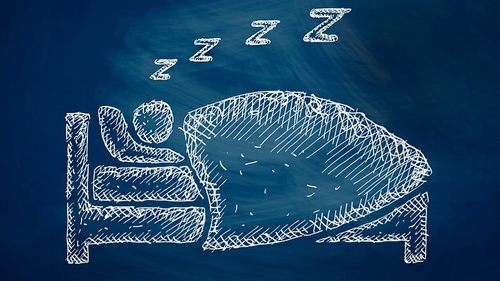
The amount of sleep an athlete gets appears to have a large impact on sports performance.
Cheri Mah of the Stanford Sleep Disorders Clinic and Research Laboratory has been following the sleep patterns and athletic performance of Stanford athletes for years. Her research continues to show that getting more sleep leads to better sports performance for all types of athletes.
One study she authored, published in 2009, followed the Stanford University women's tennis team for five weeks as they attempted to get 10 hours of sleep each night. Those who increased their sleep time ran faster sprints and hit more accurate tennis shots than while getting their usual amount of sleep.
In earlier studies, Mah found that getting extra sleep over several weeks improved performance, mood, and alertness for athletes on the Stanford men's and women's swim teams and men's basketball team.
Mah's research is some of the first to specifically look at the impact of extra hours of sleep on athletic performance and suggests that sleep is a significant factor in achieving peak athletic performance.
This is particularly important for collegiate and professional athletes who have full schedules and often travel for games and competitions. Athletes can easily fail to get regular, consistent hours of sleep. This lack of sleep, or "sleep debt," appears to have a negative effect on sports performance, as well as cognitive function, mood, and reaction time. Much of this can be avoided by making regular sleep as much of a priority for athletes as practicing their sport and eating right.
According to Mah, many of the athletes have set new personal bests and broken long-standing records while participating in these studies. Based upon her studies, many Stanford coaches have made changes to practice and travel schedules to accommodate the athlete's need for more sleep. For many athletes and coaches, this 2009 study was the first body of research that helped them truly understood how large of an impact sleep can have on performance and results.
Why More Sleep May Improve Sports Performance
Researchers speculate that deep sleep helps improve athletic performance because this is the time when growth hormone is released. Growth hormone stimulates muscle growth and repair, bone building and fat burning, and helps athletes recover. Studies show that sleep deprivation slows the release of growth hormone. Sleep is also necessary for learning a new skill, so this phase of sleep may be critical for some athletes.
How Much Sleep Do You Need?
Research shows that as little as 20 hours of sleep deprivation can have a negative impact on sports performance, particularly for power and skill sports.
Sleep experts recommend seven to nine hours of daily sleep for adults, and nine to ten hours for adolescents and teens. You can estimate your own needs by experimenting over a few weeks. If you fall asleep within 20 minutes of going to bed and wake up without an alarm, you are probably getting the right amount of sleep. If you fall asleep immediately upon hitting the pillow and always need an alarm to wake up, you are probably sleep deprived.
The good news for most recreational athletes is that just one sleepless night is not necessarily associated with any negative effects on performance. So, don't worry if you toss and turn the night before a big competition. One sleepless night is unlikely to hurt your performance.
Sources:
C. Mah. Study Shows Sleep Extension Improves Athletic Performance and Mood. Annual Meeting of the Associated Professional Sleep Societies. June 8, 2009.
C. Mah. Extended Sleep and the Effects on Mood and Athletic Performance in Collegiate Swimmers. Annual Meeting of the Associated Professional Sleep Societies. June 9, 2008.
C. Mah. Extra Sleep Improves Athletes' Performance. Annual Meeting of the Associated Professional Sleep Societies. June 14, 2007.
Samuels C. Sleep, recovery, and performance: the new frontier in high-performance athletics. Phys Med Rehabil Clin N Am. 2009 Feb;20(1):149-59, ix.
How to Use Sleep to Improve Sports Performance:
Make sleep a priority in your training schedule.
Increase your sleep time several weeks before a major competition.
Go to bed and wake up at the same times every day.
Take daily naps if you don't get enough sleep each night.
Comments